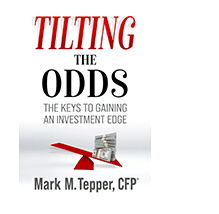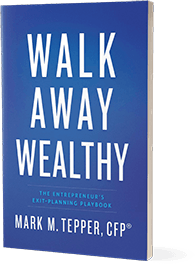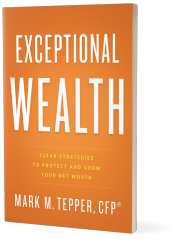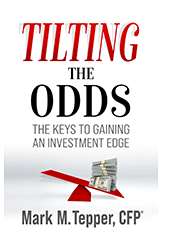A lot has happened within the past week: a new Covid-19 variant was detected, chairman of the Federal Reserve, Jay Powell, finally retired the word “transitory,” and Black Friday sales may have had their last great chance. If you didn’t get the chance to listen to last week’s episode, it has everything you need to pace along with all the topics in this one and understand why we’re talking about them now. In Episode #104 of the “Capitalist Investor” Mark “Johnny Lawrence — Cobra Kai” Tepper, Derek “Diamond Hands D” Gabrielsen and “Cool Hand” Luke Lloyd take care of the hottest current events for you including the Omicron variant, Powell’s hawkish turn, and Black Friday trends.
Outline of this Episode
- [02:39] Omicron and impulsive reactions
- [06:30] Covid-19 isn’t a threat to the market –– an economic shutdown is
- [11:10] Jay Powell must have heard last week’s episode
- [17:10] The inflation crisis is about long-term gain, not short-term pain
- [19:45] People are still spending but Black Friday has changed
Investors aren’t reacting to the virus. They’re reacting to repeating restrictions
We expected Covid variants –– we can’t be impulsive. On Nov. 26, the Omicron variant was reported to the World Health Organization and it’s discovery triggered travel restrictions all over the world. It’s almost like we’re repeating ourselves all over again.
But we expected this, didn’t we? Initial reports said Omicron’s symptoms are mild, but people are still worried.
Whenever a new variant is reported, it’s sensationalized through the media even before enough data is reported. When Omicron was announced, the Biden admin jumped on the impulse to impose travel restrictions –– people became worried and the market went down. But we here, don’t think it was simply because of the variant.
The market was not reacting to Omicron’s risks –– it was reacting to what a new variant implicates: travel restrictions and economic closures.
Policy affects money and we saw that after Biden announced he wasn’t going to shut down the economy. The market’s fear of this variant was short-term and shallow –– it’s becoming desensitized to Covid-19’s mutations. Pull backs have become shorter and slight.
We’ve been saying it for months: inflation is not transitory and Powell finally admits it
Powell gets reelected and it’s like he got a little bit braver. Last week he said the Fed is considering accelerating bond tapering and is likely to raise interest rates sooner. That’s what we needed to hear.
But what irks us is that Powell was practically lying before, most likely because of his reelection. Let’s get this straight: the Federal Reserve should not be political. Calling the inflation crisis what it is should have come sooner –– people needed to hear that this is not a short-term issue but a long-term one.
Nobody wants to live in this crisis any longer and pay more for the goods they need or want –– it’s not good for the middle class, it’s not good for the lower class, it’s not good for the majority of the population.
We’re probably close to peak inflation –– we’re not going to see ourselves out of this issue any time soon. But we’re just glad the Fed ditched the t-word and got honest.
Consumerism has changed, Black Friday isn’t the same
Black Friday weekend is the biggest shopping event of the year –– or so it was. Before Cyber Monday kicked off, initial reports showed that Brick & Mortar traffic was up 48% year over year. That’s great news. But we still have to consider that last year, there was almost no Brick & Mortar shopping because we were all inside.
When the weekend settled, we saw our first ever decrease in sales between Black Friday and Cyber Monday –– but it’s not a cause of alarm.
Things are changing and people are shopping differently now than they were 10 years ago. Supply chain issues, inflation, and Omicron all had an effect on what we saw on Black Friday: a lot of people did their shopping earlier for the fear that they wouldn’t be able to get their goods in time.
Black Friday’s decline is not a horrible thing. Holiday sales in total are projected to be up by 10 to 15 percent; people are still spending. They’re just spending differently and doing a lot of it online.
This was probably Black Friday’s last chance to make a recovery since the pandemic, and bring people back camping in front of stores again. But the fears of the supply chain crisis, early spending and people simply liking the lifestyle of online shopping were far more resilient than post-Thanksgiving traditions.
Connect with Derek Gabrielsen
- Twitter: @DerekGabrielsen
- Follow Derek on LinkedIn
- Send Derek a message here
- Check out Derek’s YouTube channel!
Connect With Mark Tepper
- Twitter: @MarkTepperSWP
- Follow Mark on LinkedIn
- Send Mark a message here
- The SWP Connect YouTube Channel
Send your questions and comments to us at info@SWPConnect.com
Subscribe to The Capitalist Investor
 Enter your information below, and we will email you our new eBook, Tilting the Odds
Enter your information below, and we will email you our new eBook, Tilting the Odds




